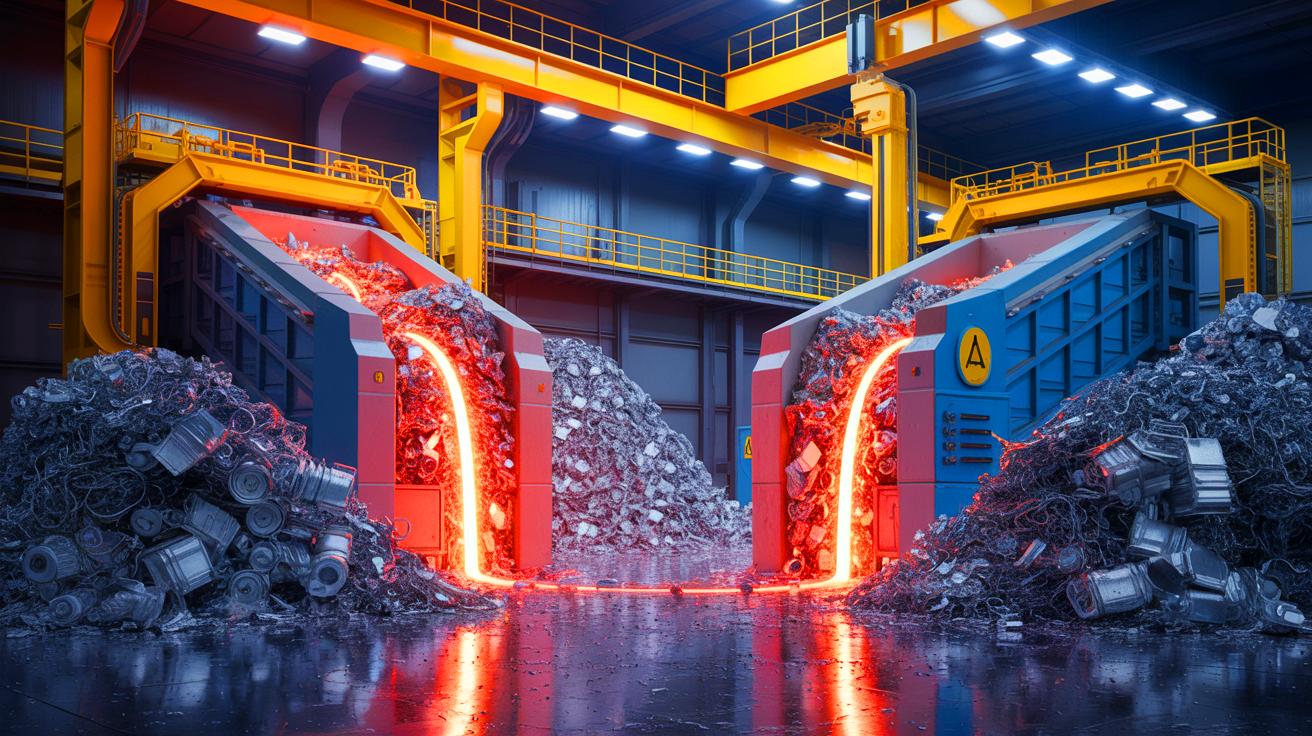IN A NUTSHELL
🔍 Speira integrates advanced technologies and AI to enhance recycling efficiency and transparency, setting new industry standards.
🌿 With ORBIS and RIVOS labels, Speira emphasizes sustainability by maximizing resource efficiency and minimizing carbon footprints.
♻️ By focusing on recycling and ending primary production, Speira aims to build a circular economy with significant energy and CO2 savings.
🔧 Speira redefines aluminum’s potential with recycling-friendly alloys, simplifying recycling processes and promoting innovation.
In the rapidly evolving landscape of industrial processes, the integration of advanced technologies and artificial intelligence (AI) is reshaping how companies approach sustainability and transparency. Companies like Speira are pioneering efforts to not only enhance operational efficiency but also dramatically reduce carbon emissions. By leveraging state-of-the-art technology, they are setting new standards in ecological accountability and resource management. This transformation is not just about operational improvements—it’s about crafting a legacy of environmental stewardship and informed decision-making that resonates throughout the industry and beyond.
Innovative Technologies in Recycling
Speira’s commitment to revolutionizing recycling processes is evident in their incorporation of advanced technologies, such as Industry 4.0. By deploying innovative sensor and camera technologies, Speira has introduced a ‘transparent’ oven at their Hamburg plant, providing real-time insights into furnace operations. This approach allows for continuous optimization and adaptation to the specific mix of scrap and primary metal used. With AI support, operators receive precise timings for critical processes like alloying and dross removal. This not only enhances operational efficiency but also extends the life of hydraulic components through predictive maintenance, reducing downtime and maximizing plant efficiency.
The decision to invest in new tiltable rotary furnaces underscores Speira’s dedication to using technology to achieve transparency and efficiency. By implementing AI-driven charge-mix optimization solutions, the company enhances operational efficiency while reducing costs. The comprehensive data transparency allows for superior ecological and economic performance, supporting Speira’s vision of sustainable industrial practices. This technological leap provides Speira with the insights needed to make decisions that are not only efficient but also environmentally conscious.
The Significance of Sustainability and Transparency
At Speira, sustainability and transparency are deeply intertwined, forming the core of their operational philosophy. The company’s proactive approach in offering customers detailed information on the ecological impact of their products is a testament to their dedication to sustainable practices. Through third-party certification, Speira has introduced labels like ORBIS and RIVOS, which emphasize their commitment to resource efficiency and a closed-loop system. ORBIS is more than just a label; it’s a promise toward a sustainable future, serving as a beacon for a more circular economy.
RIVOS further accentuates this commitment by combining external scrap with low-carbon primary metal, tailored to regional sustainable energy opportunities. This strategy not only maximizes resource efficiency but also minimizes the carbon footprint of their products. Speira’s detailed sustainability profiles enable customers to make informed decisions, reflecting the company’s belief that well-informed decisions are the best decisions. This dedication to transparency sets a benchmark in the industry, underlining the importance of open communication in fostering trust and accountability.
Building a Circular Economy
Speira’s decision to cease primary aluminum production after 62 years marks a significant shift towards a fully circular economy. By focusing exclusively on recycling, they aim to achieve up to 95% energy and CO2 savings compared to primary production. With over 30 million tons of aluminum recycled annually worldwide, Speira is at the forefront of efforts to increase the current 75% reuse rate toward full circularity. Their strategy encompasses securing end-of-life scraps and investing in modern recycling equipment, significantly enhancing their recycling capacity.
Speira’s state-of-the-art facility for recycling beverage cans exemplifies their commitment to circularity. The plant’s ability to recycle a can in just 60 days showcases their efficiency and commitment to reducing CO2 emissions. Additionally, their expertise in recycling complex scraps, like oily or painted metals, further solidifies their role as leaders in the recycling industry. Through partnerships with customers, Speira transforms linear business models into circular ones, embodying a sustainable approach that integrates recycled materials across the supply chain.
Redefining Aluminum’s Potential
Speira is redefining the limits of aluminum by exploring new applications and partnerships. By focusing on recycling-friendly alloys, they offer solutions with minimal ecological footprints, ensuring that alloys can easily start new life cycles. Their development of recycling alloys like VIA MARIS Njørdal, certified by the Water Revolution Foundation, highlights their innovative approach. This alloy not only reduces material use and weight but also improves performance, showcasing the potential of RFAs (recycling-friendly alloys) in diverse applications.
Speira’s efforts to simplify chemical compositions through post-casting processes like annealing and rolling are aimed at reducing complexity in recycling. By achieving the same physical properties with fewer alloys, they enhance the sustainability of aluminum recycling. This approach not only simplifies recycling but also contributes to building a circular economy. Speira’s commitment to innovation and partnership with ambitious collaborators promises a future where aluminum’s potential is fully realized, embracing a sustainable and circular world.
As Speira continues to lead in sustainability and transparency, their efforts raise important questions about the future of industrial practices. How can more industries adopt similar technological advancements and sustainable strategies to create a more eco-friendly and transparent world? The answer lies in collaboration, innovation, and a steadfast commitment to environmental stewardship.
This article is based on verified sources and supported by editorial technologies.
Ça vous a plu ? 4.5/5 (26)

